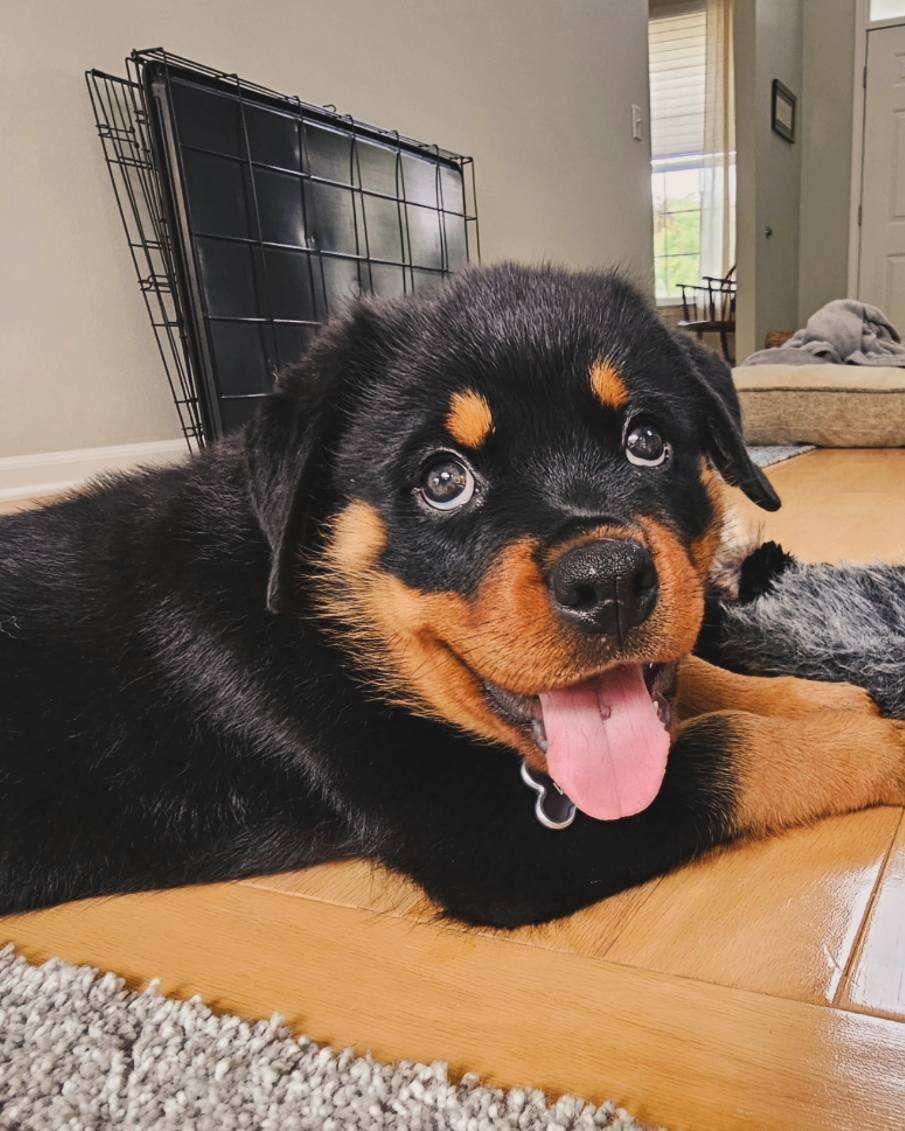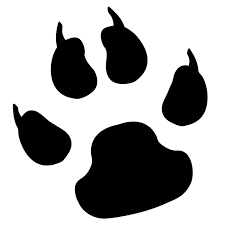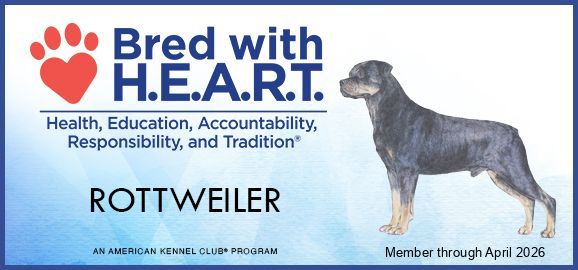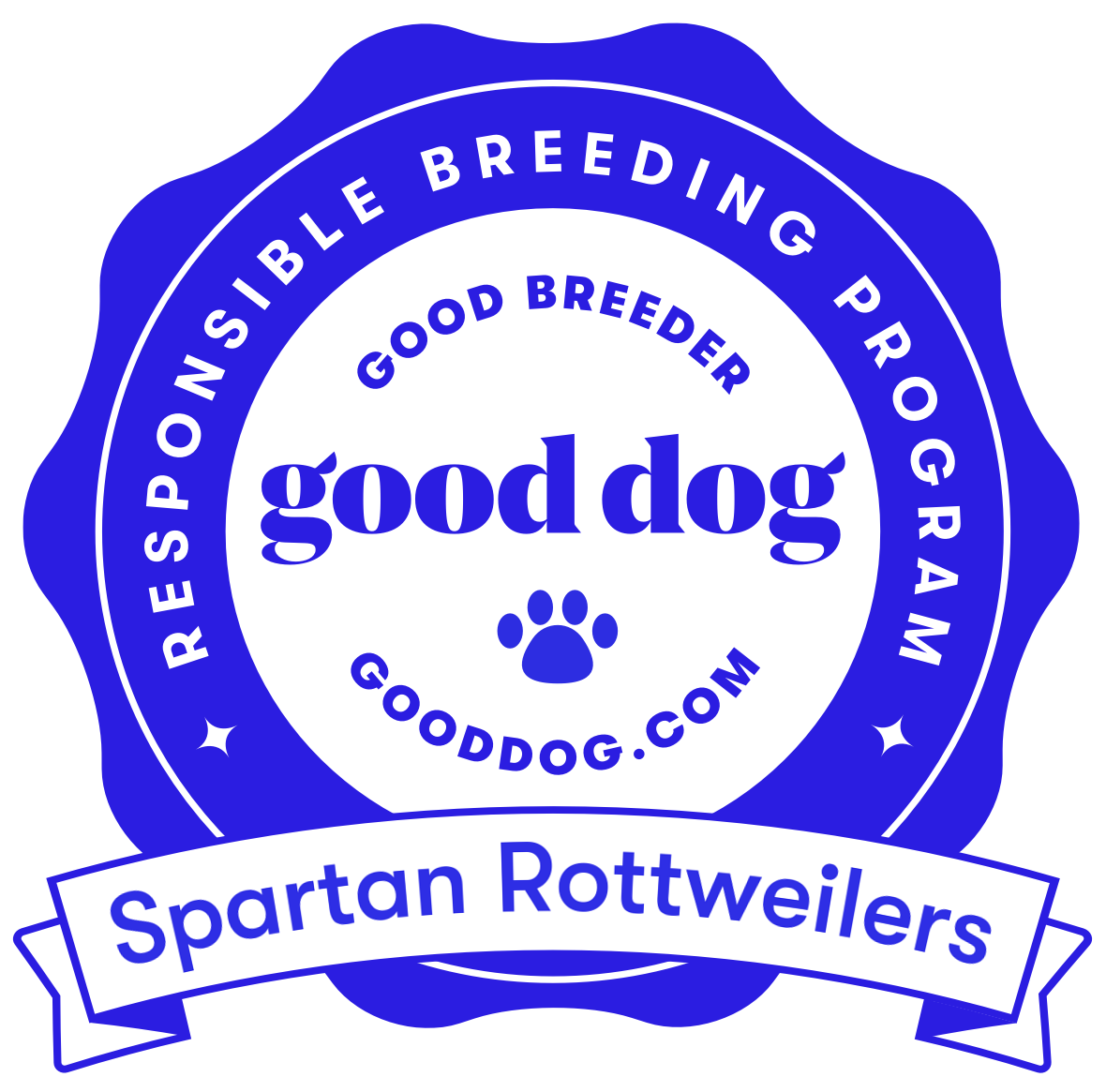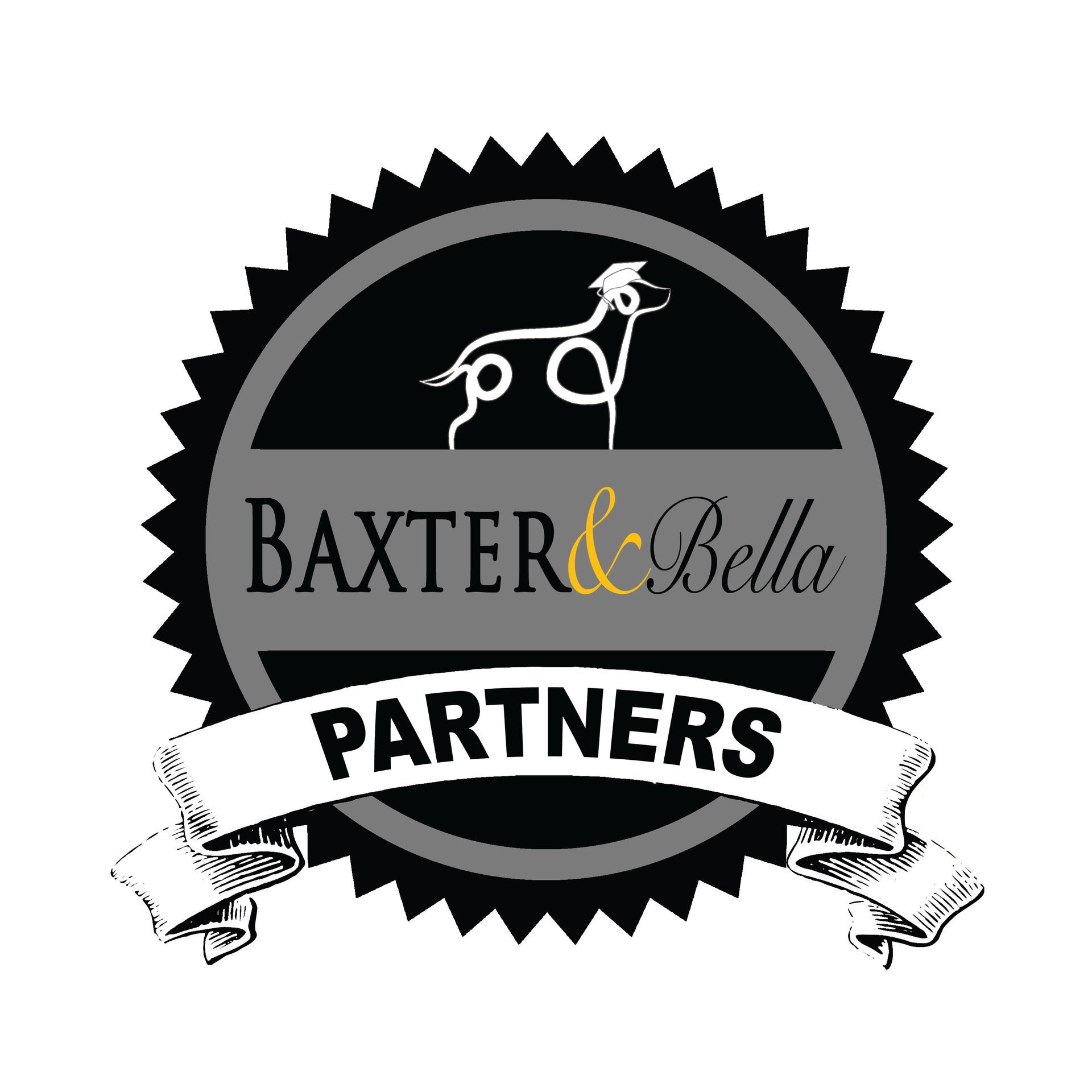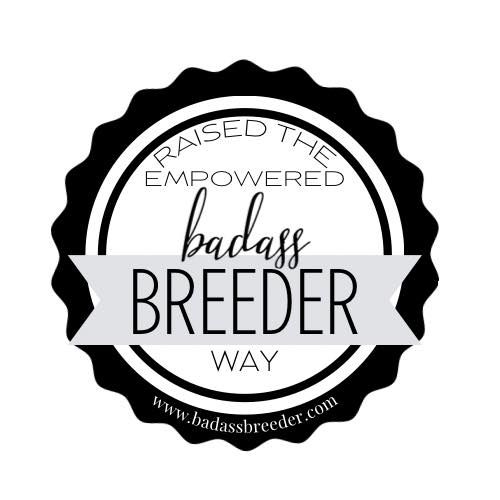Why is my sweet little puppy biting me?
Raising a Respectful Rottweiler Puppy

🐾 Raising a Respectful Rottweiler Puppy: Understanding Pack Behavior, Biting, and Leadership
Bringing home a Rottweiler puppy is incredibly exciting—but also a big responsibility.
At Spartan Rottweilers, we want you to understand
why puppies bite, push, and test boundaries—and how you can guide your new family member into becoming a respectful, confident, and happy adult.
It all starts with
pack behavior, something your puppy already understands instinctively before ever leaving the litter.
🐶 Why Puppies Bite and Push: It’s Natural Pack Behavior
From the moment puppies are born, they learn about pack order by
pushing, growling, and biting
their littermates.
- The puppies who push and bite the most usually
rise to the top of the pack.
- The ones who back down become
lower-ranking subordinates.
- The strongest puppies
get better access to mom during feeding and
have first pick of resources.
This behavior begins as early as one or two weeks of age!
When your puppy arrives home, he instinctively needs to figure out
where he fits into your new "pack."
The only way he knows how to test that?
Pushing, growling, and biting.
This doesn’t mean he’s aggressive—it means he’s being a perfectly normal puppy.
Your job now is to clearly (and kindly) show him where he fits.
🏡 Why Establishing Pack Leadership is So Important
In a stable pack,
lower-ranking dogs never challenge the alpha.
Once rank is established, lower members avoid conflict with leaders. They trust the leadership and find comfort in knowing who’s in charge.
Your puppy already understands
this at a deep, instinctive level.
You simply need to show him—with consistency—that
you are the calm, confident leader.
When you do, you'll be amazed how quickly the biting and boundary-pushing will stop.
Most families see a
major change in just a few days!
🐕🦺 Your First Step: Crate Training (It’s Not Optional)
A den is vital for young puppies in the wild—and in your home.
- It’s a place of
safety, security, and rest, not punishment.
- Your puppy’s
crate becomes his den—his personal, peaceful spot.
✅
Start crate training immediately.
✅ Make the crate a happy place.
✅ Never send your puppy to the crate as punishment.
At night, your puppy should sleep in his crate,
not in your bed
or on the couch.
In the wild, the alpha sleeps above the pack—not side-by-side with subordinates.
Even when traveling, the crate becomes a familiar "home base" that can be used wherever you go!
It provides comfort, security, and a consistent space that helps your puppy feel safe even in new environments.
🏠 Setting House Rules: How to Teach Respect and Build Trust
For now, your puppy
should not have free roam of the house.
Here’s why:
- Control of space = leadership in a puppy's mind.
- Free access = no leadership (and a lot of trouble).
Keep your puppy on a leash indoors during supervised time.
This helps him understand that you control the space and the activities, just like a mother dog would.
Outside?
Always use a leash, even in fenced yards.
You’re teaching that
you decide where he goes and when—building a foundation of
security and respect.
🧸 How to Manage Toys and Resources
In the wild, the alpha owns everything.
Subordinates get access only when allowed.
You’ll use this natural instinct to help prevent resource guarding problems later.
✅ Keep toys in a bin your puppy
cannot access.
✅
You pick the toy and
you decide when playtime starts and ends.
✅ Before giving a toy, ask for something first—a sit, a touch, or even just calm behavior.
Important:
If your puppy nips your hand during play:
-
Cry out loudly to startle him, turn away, and
ignore him for 15–30 seconds.
- If the nipping continues, you will need to escalate your correction—just as his own mother would.
- You may need to
gently hold his mouth shut
for a few seconds or even give a
light thump on the nose to interrupt the behavior.
- In the wild, a mama dog would likely
nip at a puppy
for being too rough—unless you
want to use your teeth (we don't recommend it!), a firm but fair thump will get the point across. You’re simply teaching that
Biting Ends the fun.
The goal is not to
hurt or scare your puppy—it’s to mimic a natural correction he instinctively understands.
With consistency, he will quickly learn that rough behavior has consequences—but fair leadership builds respect
and brings
trust, play, and praise.
🍽️ Food is a Leadership Tool (Use it Wisely)
Feeding is another powerful moment to reinforce your role.
Here’s how:
- Prepare the food while the puppy watches.
- Wait until he’s calm (no barking or jumping) before feeding.
- Ask for a behavior first (like a sit) before placing the bowl down.
And
never
take food away while your puppy is eating to "show dominance."
You don't need to bully your dog into submission—that's not how real pack leaders behave.
Instead, teach him that
good things come from your hand:
- Offer treats by hand while he eats.
- Occasionally drop a treat into his bowl while he’s eating.
- Show him that your approach = more rewards, not a threat.
This simple training builds trust, security, and reduces any guarding behavior.
🚫 What NOT to Do
❌ No "alpha rolls" (forcefully pinning your puppy on his back).
At Spartan Rottweilers, your puppy has already been gently introduced to handling that
mimics natural submission
—in a way that’s positive, not scary.
We spend time getting each puppy used to:
- Being placed gently on their back
- Having their tummy rubbed
- Having their feet handled
- Hands gently touching their face, ears, and mouth
This early experience teaches them that trust and relaxation around people are normal—and that giving in to calm handling is a good thing, not something to fear.
Keep up this kind of gentle, positive handling at home. It will continue to build your puppy’s trust in you, strengthen your bond, and make future grooming, vet visits, and training so much easier.
❌ No grabbing or yanking food away.
❌ No rough "dominance games" like tug-of-war (until he’s much older and secure).
Real leadership is
calm, fair, and steady—not forceful.
Your puppy instinctively respects a leader who sets boundaries with kindness and consistency.
🐾 Final Thoughts: Lead With Confidence and Fairness
Your puppy
wants to follow a strong, fair leader—it’s wired into him.
When you provide structure, set boundaries, and lead with kindness, your puppy will relax, trust you, and grow into the
amazing Rottweiler companion you dreamed of.
At Spartan Rottweilers, we raise every puppy with these principles in mind
—setting the stage for a lifetime of loyalty, respect, and love.
